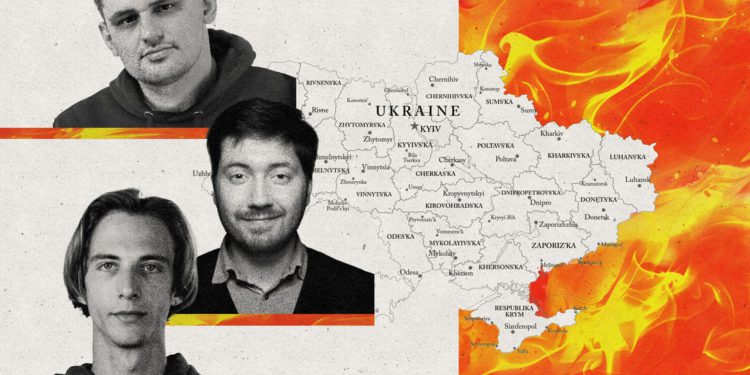Serhii Prokopenko heads the independent newsroom of Gwara Media in the front-line city of Kharkiv, thirty-two kilometers from the russian border. Under his leadership, a team of around twenty journalists not only informs the world about the full-scale war but also fights for the right to exist: they rent an editorial car, look for grants, and learn how to ask for assistance. After the freeze in funding from USAID, Gwara‘s budget collapsed. Some of the journalists were mobilized, and Prokopenko himself is trying to keep the team going in conditions of constant stress and lack of resources.
The story of the struggle for independent journalism in the front-line city is told, in particular, by the prestigious American publication Columbia Journalism Review.
At the beginning of the war, the newsroom created a bot for checking facts called Perevirka. In 2023, the human rights organization Human Rights First honored Gwara with an award for his work in combating russian disinformation and exposing war crimes. That same year, Gwara, in partnership with a British film studio, released a documentary about a mass grave found in Izium in northeastern Ukraine (the film was part of a series that won a prestigious BAFTA award).
“This is one of the stories I’m most proud of,” Prokopenko said. “Because I was born in this city.”
According to him, the film was about hope: “Hope that prosecutors, investigators, this powerful legal structure will give a chance to find those responsible for such crimes — will give hope to find justice.” However, behind this recognition lies constant survival…
Financial catastrophe
The biggest blow to the media was the freeze on American funding. In January, U.S. President Donald Trump froze all foreign aid contracts through USAID, which financed almost every publication in Ukraine. Gwara‘s budget is 85% donor-funded, so the newsroom was on the verge of disaster.
Since the beginning of the invasion, Gwara has lost several journalists: some went to the military, some to more profitable areas. The team resorted to creative solutions: they began to rent out their Hyundai Tucson SUV for a hundred dollars a day; the driver was the father of Gwara‘s marketing director, Yaroslav Ustych, who would otherwise have delivered sushi. In 2022, Ustych opened a coffee shop right in the newsroom – he became a barista, treating colleagues to homemade cookies. The clients were journalists and their guests. The coffee shop lasted a year and a half, until it had to be closed due to unprofitability.
Serhii Prokopenko submitted numerous applications to European institutions, but received approval for only a small fraction. The constant stress led the editor to a personal crisis – for the first time in his life, he sought psychological help, realizing that he was on the verge of a breakdown.
“No one cares,” said Prokopenko. “We will have to cope on our own.”
Perugia, Italy, seemed like a potential lifeline. In the spring, the media person received an invitation to speak at the International Festival of Journalism, a prestigious gathering of media executives and opinion leaders. The prospect of joining the event was a dream, especially for the search for European donors.
However, obtaining a travel permit for a man of military age turned out to be a difficult test. After weeks of waiting for documents and bureaucratic obstacles, Prokopenko was never able to get to Italy. Instead, his colleague Yaroslav Ustych, the marketing director, who had the status of a critical employee, went to represent Gwara at the festival and seek help for the media.
Gwara‘s precarious situation is typical for Ukrainian newsrooms
As the Columbia Journalism Review notes, other Ukrainian colleagues came to Perugia with the same intentions. They faced various threats, including forced mobilization, censorship, and surveillance. Since 2022, according to the Prosecutor General’s Office, more than fifty journalists have been killed — Ukrainian, foreign correspondents, fixers. But this year, the stakes seemed especially high: the threat to Ukrainian journalism is the lack of funding.
With funding rapidly declining, newsrooms across Ukraine rushed to find solutions. Prokopenko submitted about sixty applications to European institutions and received only 15% of the requested funds.
“My nervous system will be destroyed,” he said. “We simply don’t have the funds.”
The stress provoked, he said, a “crisis,” and for the first time in his life, he sought psychological support.
According to him, due to similar problems, several newsrooms in Kharkiv recently agreed to receive funding from the local city council. “And this means that they are getting closer to the government,” Prokopenko noted. “This is not very good.”
Source: “How to Prove Your Value in Wartime” by Columbia Journalism Review
Valeriya Muskharina
NUJU Information Service

 THE NATIONAL UNION OF
JOURNALISTS OF UKRAINE
THE NATIONAL UNION OF
JOURNALISTS OF UKRAINE
















Discussion about this post